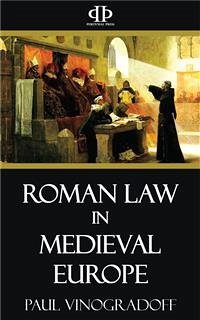Within the whole range of history there is no more momentous and puzzling problem than that connected with the fate of Roman Law after the downfall of the Roman State. How is it that a system shaped to meet certain historical conditions not only survived those conditions, hut has retained its vitality even to the present day, when political and social surroundings are entirely altered? Why is it still deemed necessary for the beginner in jurisprudence to read manuals compiled for Roman students who lived more than 1500 years ago? How are we to account for the existence of such hybrid beings as Roman Dutch Law or of the recently superseded modern Roman Law of Germany? How did it come about that the Germans, instead of working out their legal system in accordance with national precedents, and with the requirements of their own country, broke away from their historical jurisprudence to submit to the yoke of bygone doctrines of a foreign empire? Surely these and kindred questions are well worthy of the attention of lawyers, historians, and students of social science. I cannot attempt to cover the whole ground in the discussion of such a problem, but it may be of some value to sketch the chief lines of the subject in regard to the principal countries of Western Europe during the Middle Ages. It was mainly at that time that there took place the momentous process, not inappropriately called by German scholars ‘the Reception of Roman Law.’
Bitte wählen Sie Ihr Anliegen aus.
Rechnungen
Retourenschein anfordern
Bestellstatus
Storno









